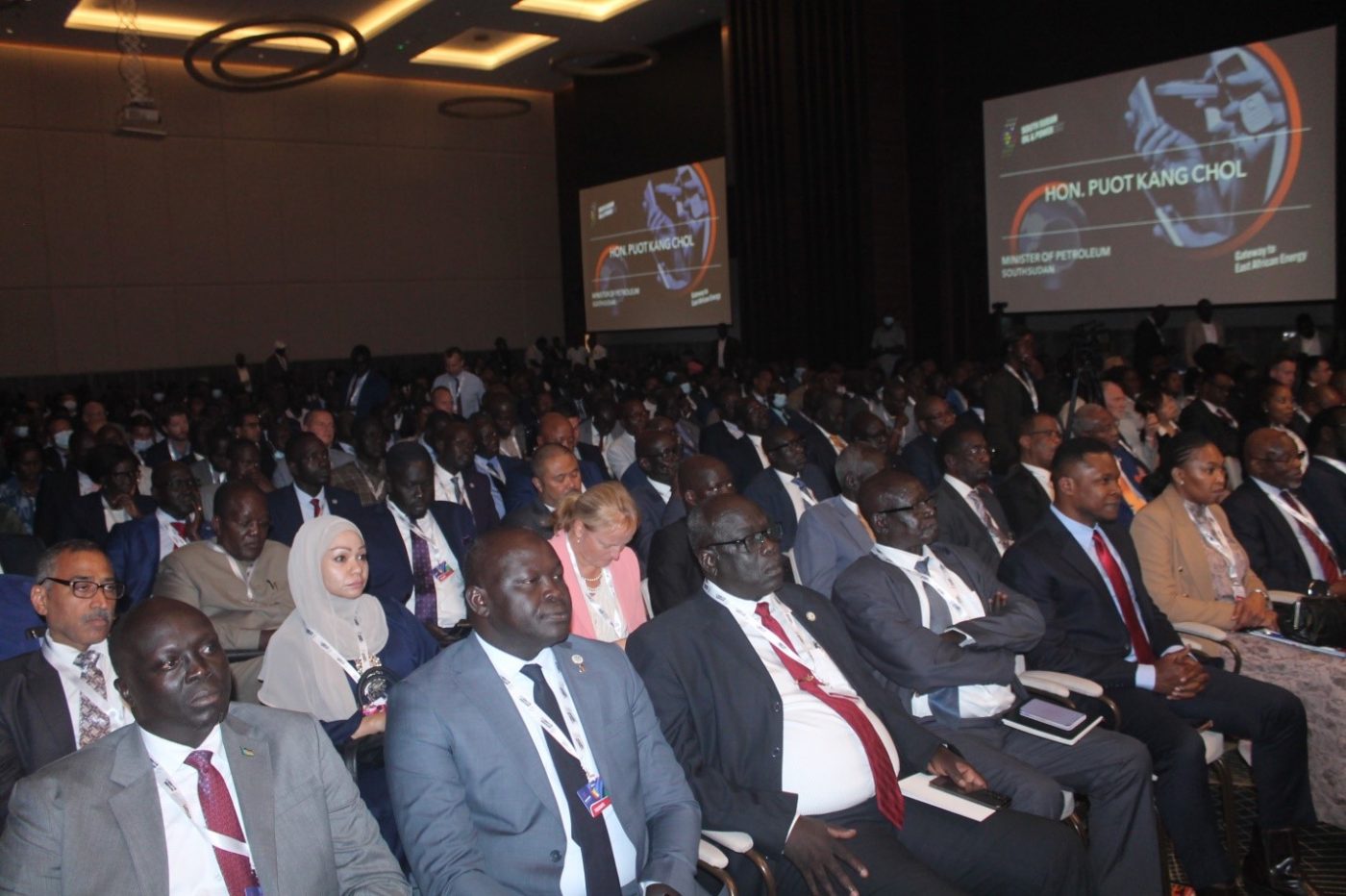South Sudan’s oil and gas sector is being crippled by years of sanctions that are depriving it’s capacity to develop and harness it’s huge potential in the oil and gas sector, experts said on Tuesday.
Puot Kang Chol, Minister of Petroleum, said that the sanctions imposed on the youngest nation since outbreak of conflict in 2013 are curtailing efforts to fully develop and exploit the vast oil and gas sector.
“Concerning sanctions the future of this country does not belong to those of us who are on this stage the future of this country belongs to those children who are playing football on the streets, and their future cannot be punished because of our own mistakes,” Kang told investors attending the fifth oil and power conference at the Radisson Hotel in Juba on Tuesday.
“I have been telling those who sanction us over and over again that when you continue to sanction us and you are not helping us on how to solve our internal crisis you will not be helping the situation,” he added.
He disclosed that Juba is currently producing 170,000 barrels per day in it’s northern oil fields and is aiming to return to the pre-war level of 350,000 bpd within the next few years from now.
Kang said that they are looking forward to attract reliable investors to help solve challenges such as high water cut, lack of heating facilities and the continued depletion of reservoir pressure which are affecting smooth production in the oil fields.
NJ Ayuk, Executive chairman African Energy Chamber, said sanctions are hindering foreign investment in South Sudan oil and gas projects and also preventing the country from harnessing it’s natural resources on behalf of it’s people.
“The sanctions are making it needlessly difficult for South Sudan to use oil and gas to foster economic growth, create jobs and business opportunities, build capacity and particularly important develop gas-to-power programs capable of minimizing the country’s extensive energy poverty,” Ayuk said.
South Sudan has 3.5 billion barrels of proven oil reserves.











